Selecting commune-level cadres to meet the requirements of the new situation
Delegate Ta Van Ha - Vice Chairman of the National Assembly 's Committee on Culture and Society said that when implementing the organization of a two-level local government and merging administrative units, the issue of arranging staff and people is sensitive and complicated.
According to him, the new regulations also determine that there will be no more “civil servants for life”, so anyone who can ensure that they meet the requirements of the task in the new situation will be employed. Those with qualifications, abilities and practical experience clearly demonstrated through daily work should be able to choose a team that truly meets the requirements.
National Assembly Delegate Ta Van Ha. Photo: National Assembly
This National Assembly delegate also said that the district-level cadres have been trained and selected systematically and carefully, but previously worked at the intermediate level. In the near future, they will be moved down to the commune level, and in order to be close to the people, they will need other skills and must adapt.
“As a land official, you must know every plot of land and field; or as a communal worker, you must know every village, even every family in the area. If you cannot adapt, you must stand aside,” said Mr. Ta Van Ha.
Referring to the requirement that the number of cadres and civil servants must be reduced to a certain number after 5 years, the Vice Chairman of the National Assembly's Committee for Culture and Society also said that we must act decisively and actively but must have a roadmap, especially in personnel work. The apparatus needs to be stable and operate according to new conditions, but there must be a certain delay. Of course, what is ripe and clear should be done immediately, but there are things that must be carefully considered to be more effective.
Vice Chairman of the People's Aspirations and Supervision Committee Hoang Anh Cong also emphasized the need to reorganize the apparatus and administrative units to create room for the country's development. The grassroots must be close to the people, and the Central Government must provide good direction for the country to develop.
On May 14, at the 9th Session, the National Assembly discussed the draft Resolution of the National Assembly amending and supplementing a number of articles of the 2013 Constitution; the Law on Organization of Local Government (amended) and the Law on Cadres and Civil Servants (amended).
The Central Government has directed to end the district level, merge provincial administrative units, and reduce from 63 to 34 provinces and cities. Commune-level administrative units have been reduced from 10,035 to 3,321 units. The reduction in the number of provincial and commune-level administrative units has resulted in a large surplus of cadres, civil servants, and public employees.
Considering that the arrangement and assignment of cadres is not simple, Mr. Hoang Anh Cong cited that the number of new commune-level cadres and civil servants could be up to hundreds of people, so it must be calculated. We must be consistent throughout the general policies, to create opportunities for cadres, civil servants and public employees to continue serving society.
This National Assembly delegate also emphasized the selection of officials, especially leaders, because "choosing the right person will make things go smoothly, choosing the wrong person will make things stagnant, sometimes even damaging the organization."
Don't let redundant headquarters go to waste
The arrangement and merger also resulted in a considerable amount of surplus headquarters. According to delegate Ta Van Ha, this is a huge resource so there must be a plan for effective use, first of all, as the General Secretary said, priority should be given toeducation , culture, and health - that is, areas serving community welfare and social security. After prioritizing, the remaining balance can be auctioned to effectively develop land resources.
However, Mr. Ta Van Ha also noted that headquarters are often located in prime locations in the center and if urban development focuses on building apartments, it will not only put pressure on population and the environment but also on infrastructure. "If businesses build high-rise urban areas, the State and people will have to spend money to widen roads, build more schools and hospitals to meet the demand, so it must be considered synchronously," he said.
National Assembly Delegate Hoang Anh Cong. Photo: National Assembly
Delegate Hoang Anh Cong also emphasized that streamlining the apparatus and rearranging administrative units not only involves arranging new units' workplaces and staffing, but also dealing with redundant headquarters, not leaving them abandoned or wasteful. According to him, after prioritizing, there should also be a plan for auctioning them according to the law to collect budget and invest in development.
“Why do we just leave the headquarters abandoned without thinking about socializing them according to the law? Then we can collect budget to invest in projects to develop the country and the locality,” said Mr. Hoang Anh Cong.
In addition, the Vice Chairman of the Committee for People's Aspirations and Supervision also said that the National Assembly should have a message in the merger resolution that the validity of documents will be kept unchanged for 5 years, except in cases of new issuance. Because changing documents will cause great disruption and people will face difficulties.
According to VOV
Source: https://baothanhhoa.vn/can-bo-huyen-xuong-xa-phai-thich-nghi-neu-khong-se-dung-sang-mot-ben-248647.htm


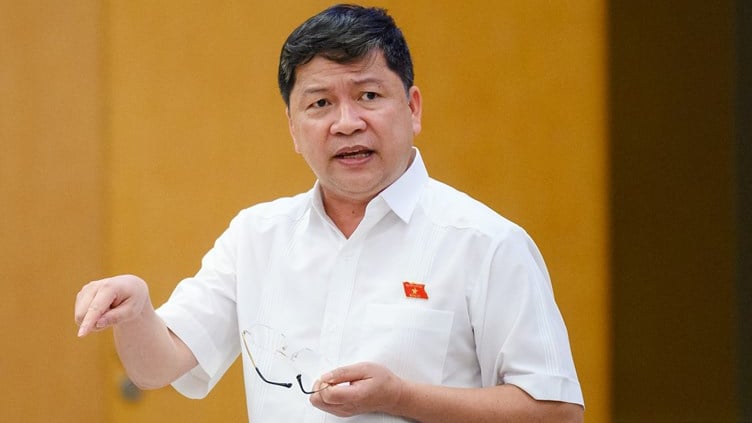
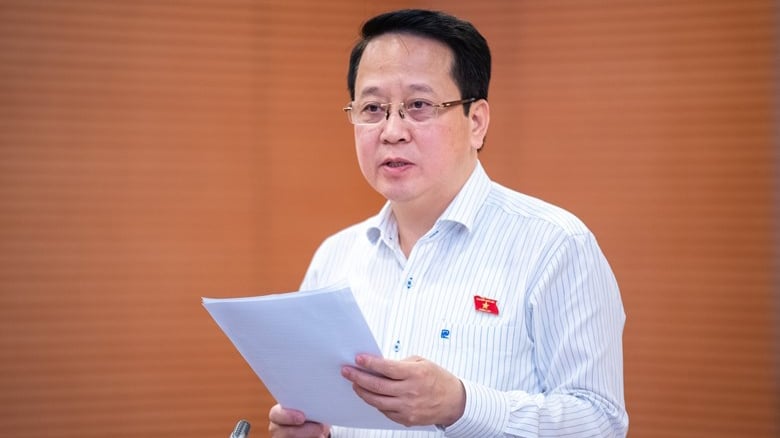
![[Photo] Readers line up to visit the photo exhibition and receive a special publication commemorating the 135th birthday of President Ho Chi Minh at Nhan Dan Newspaper](https://vphoto.vietnam.vn/thumb/1200x675/vietnam/resource/IMAGE/2025/5/17/85b3197fc6bd43e6a9ee4db15101005b)

![[Photo] Prime Minister Pham Minh Chinh chairs meeting on science and technology development](https://vphoto.vietnam.vn/thumb/1200x675/vietnam/resource/IMAGE/2025/5/17/ae80dd74c384439789b12013c738a045)

![[Photo] More than 17,000 candidates participate in the 2025 SPT Competency Assessment Test of Hanoi National University of Education](https://vphoto.vietnam.vn/thumb/1200x675/vietnam/resource/IMAGE/2025/5/17/e538d9a1636c407cbb211b314e6303fd)







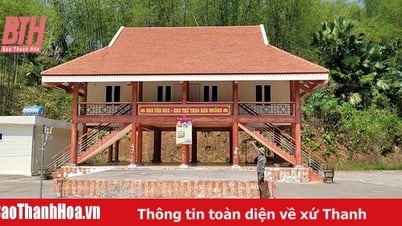










![[Photo] Nearly 3,000 students moved by stories about soldiers](https://vphoto.vietnam.vn/thumb/1200x675/vietnam/resource/IMAGE/2025/5/17/21da57c8241e42438b423eaa37215e0e)





















































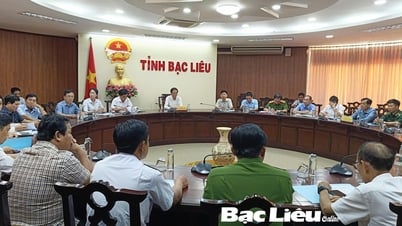





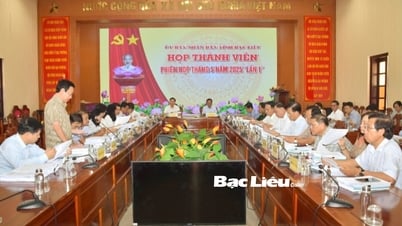











Comment (0)